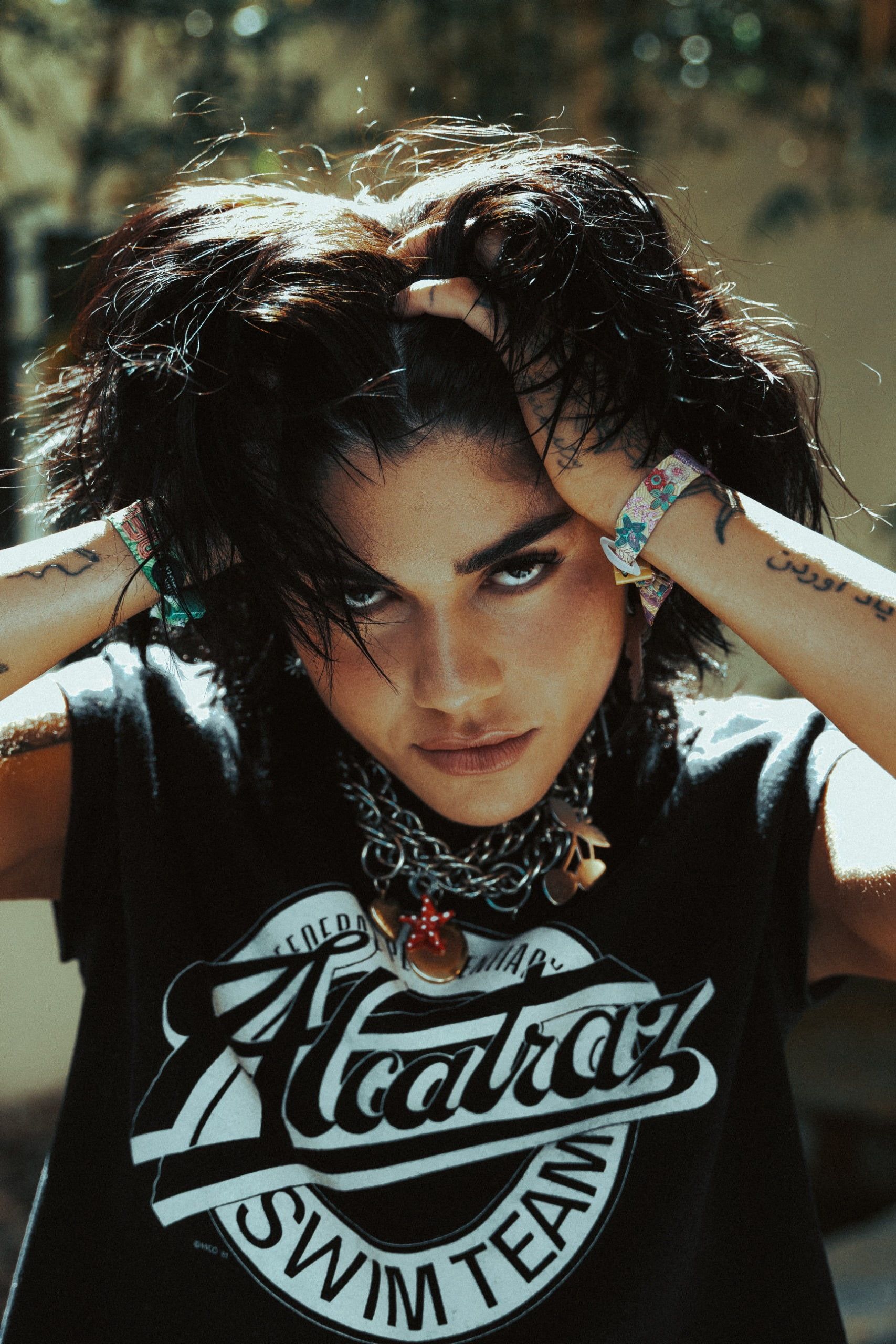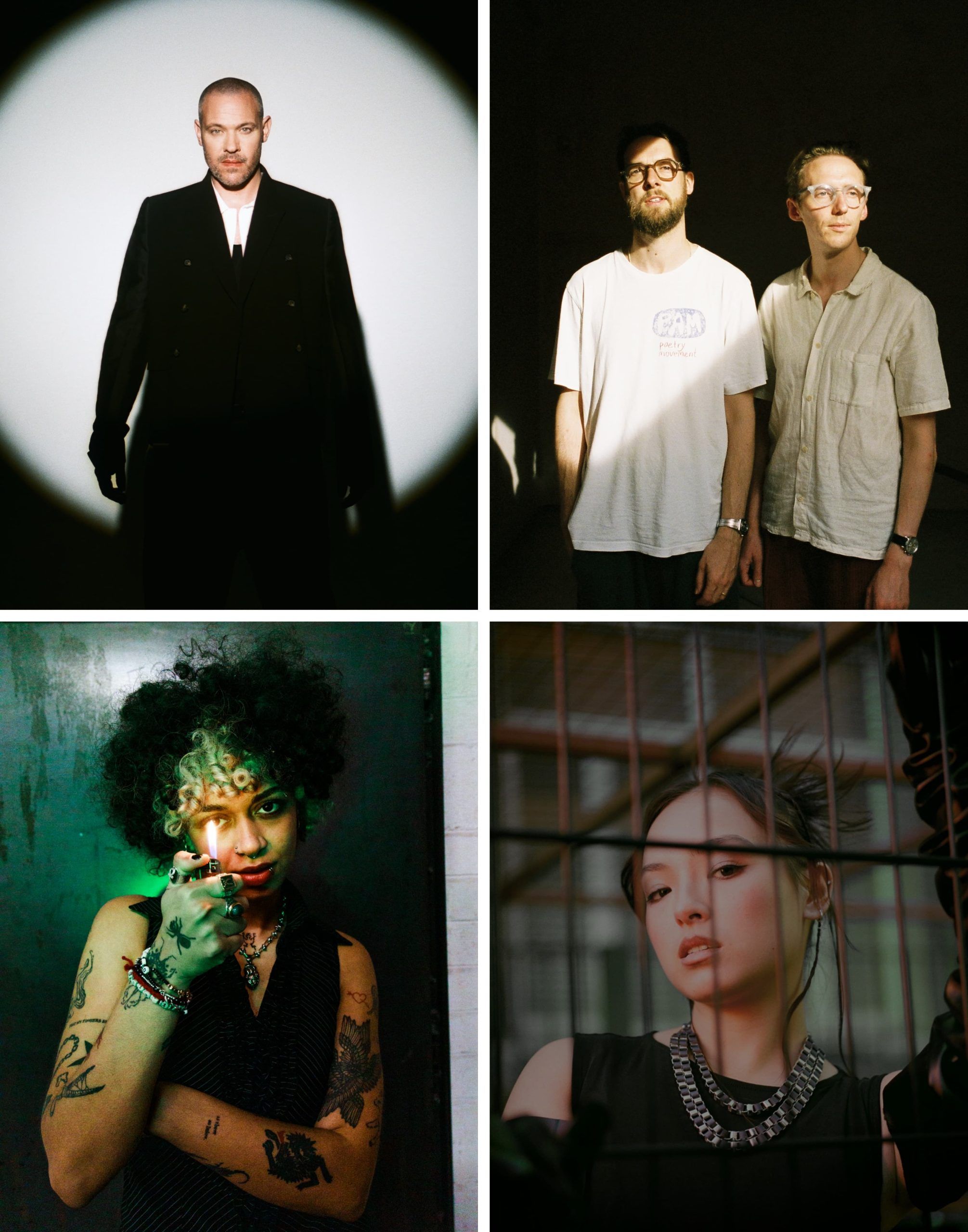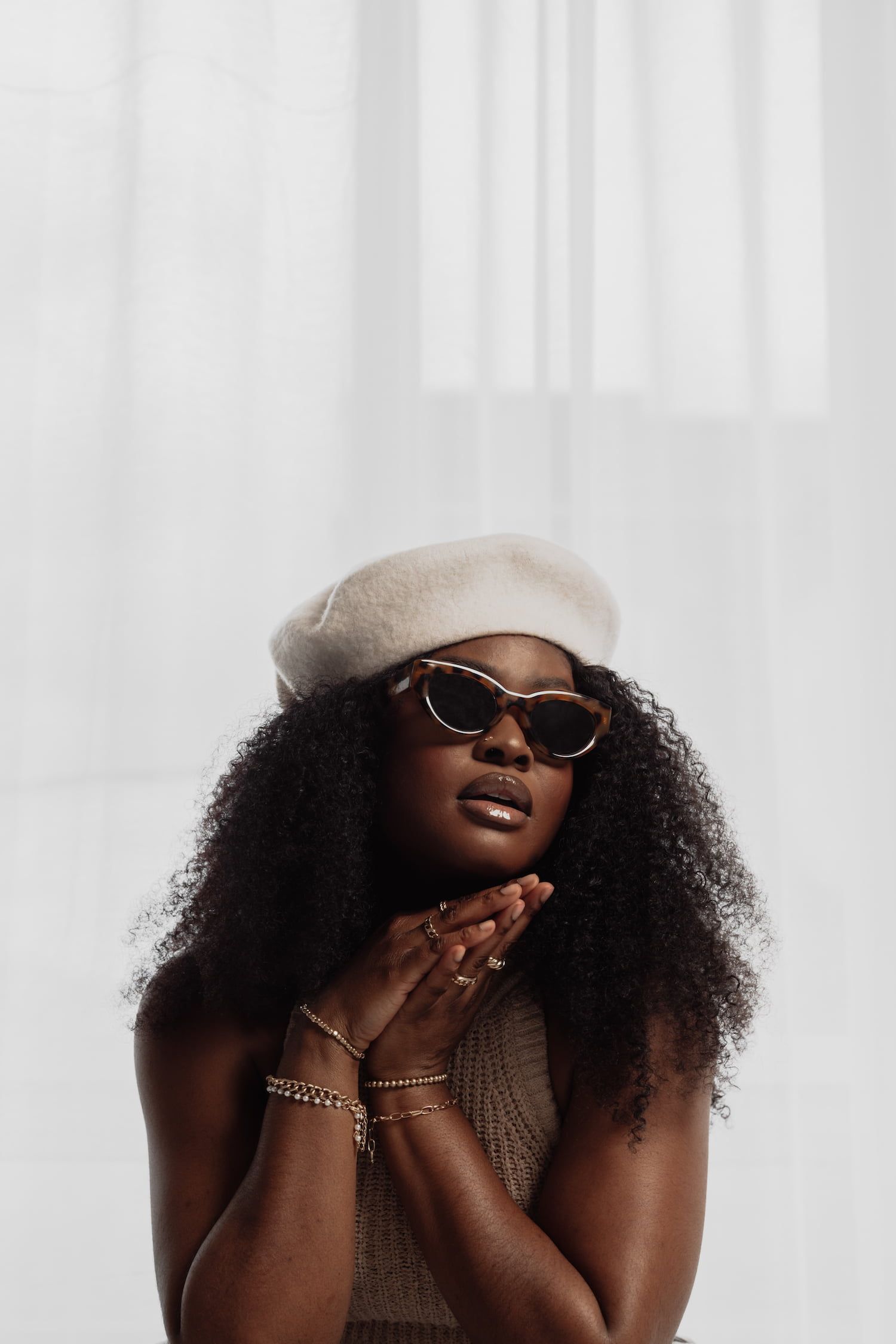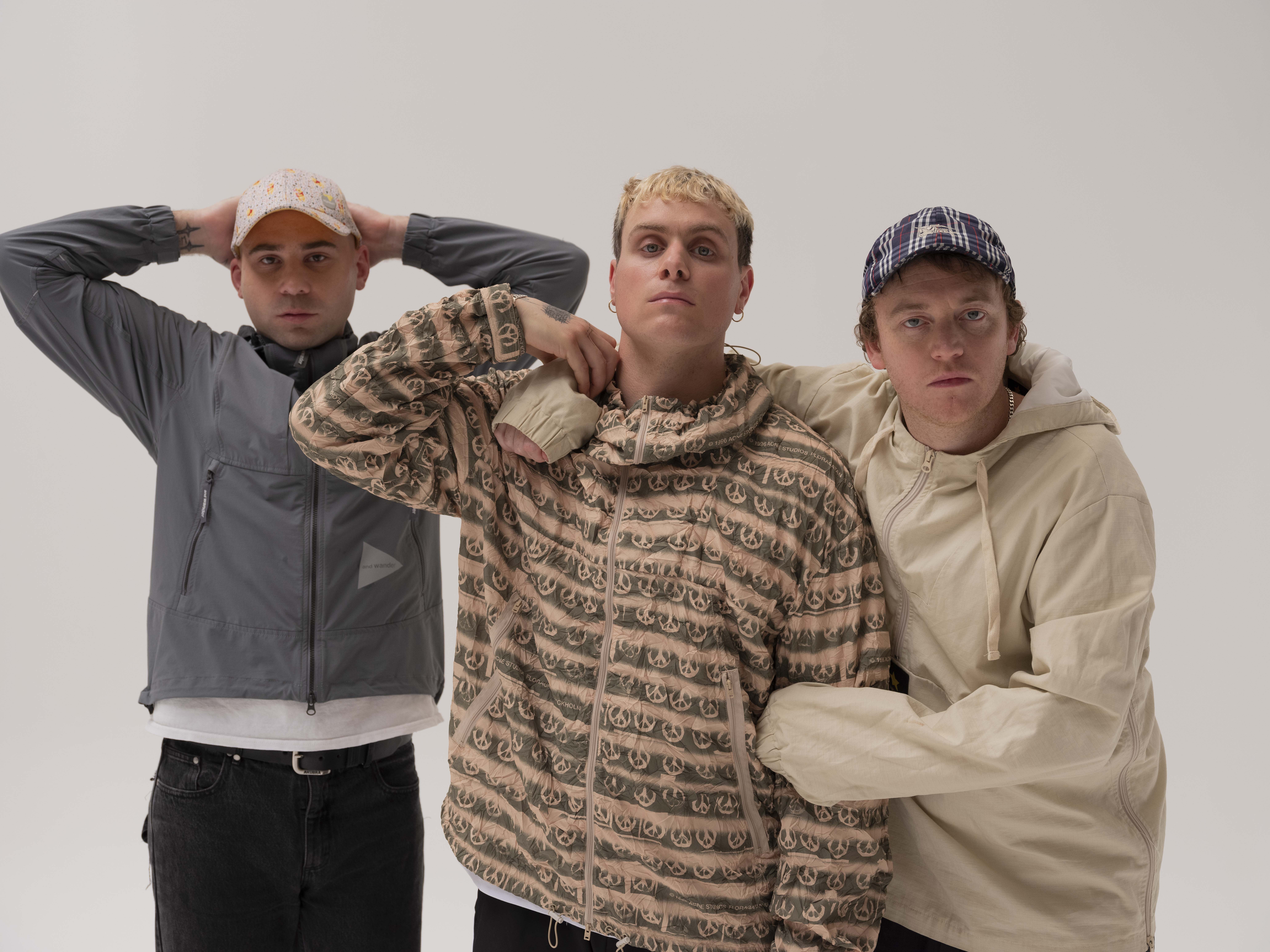
DMA’S
Life is a game of changing, according to DMA’S. There seems to be an element of truth in that, and somehow, the song title also describes the journey the band have been on.
Taking a risk can be scary, but it’s familiar territory for the Australian indie-rock, alt-pop trio, who are so used to experimenting. There is always going to be challenges ahead, things that need solving, and it’s about how these challenges are dealt with. Being flexible, open to new ideas helps, it’s one of the band’s strengths, and when it comes to writing songs and making music, they demonstrate a versatile approach. So far each album has sounded different to its predecessor, and the incoming – fourth studio record – is no exception. Upbeat, illustrious and cohesive, it shows further ambition, perhaps taking more of a creative risk than before, the ideas come together in remarkable fashion. Notable career-defining moments continue to play out, appearances before large crowds at Reading and Leeds Festival, the Alexandra Palace show in London, and January dates playing alongside Arctic Monkeys on home soil. In between all that, Johnny Took even found the time to get married.
1883 Magazine caught up with the songwriter to talk about the process behind their latest project How Many Dreams?, the strong connection they enjoy with fans and the determination to stay true to themselves, as musicians, and as people.
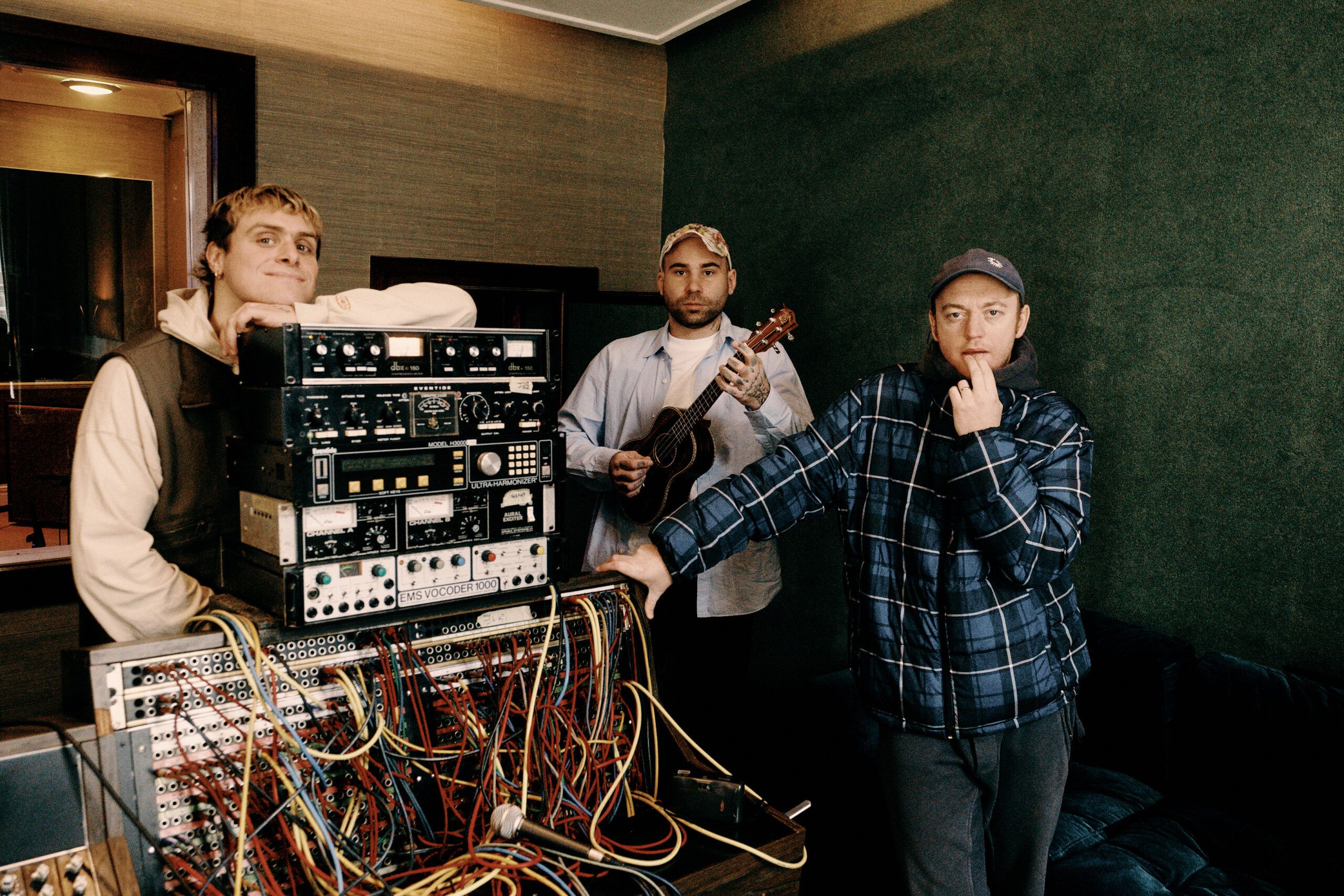
DMA’S at RAK Studios. Photography by Reuben Bastienne Lewis.
Some things are important in life, and other things are more pivotal when it comes to a career, but playing alongside Arctic Monkeys seems hard to dismiss.
In a way, it just felt like another show. But when you’re playing that sort of show you get in front of a whole bunch of new people, which is always nice. I treat every show like it is. It’s a treat that we share the same, there’s a point, if you knew the songs let’s get out there and have fun, whether it’s 100 people or whether it’s 26,000 people, it’s about that support. You have to be authentic, do what you do and have fun, there’s no point in freaking out, because all week long you focus on the wrong things.
DMA’S are known for playing magnificent live shows. You seem to have a close connection with audiences, and I can’t help but think this is key to giving a great live show. How do you see it?
I totally agree. We’ve got some play on radio, we haven’t had much or tremendous accounts of love on mainstream radio, but what we’ve done is consistently stay true to ourselves. We just stuck to what we do, while still evolving from record to record, but I feel our fan bases evolved with us, they’re part of the journey with us.
One of the things I’m most proud of is our foundation, particularly in the UK, where the core fan base was really strong. We’ve got a strong core underneath us, even though we haven’t had tremendous amounts of mainstream success in terms of radio. I feel just with social media, the way things are, and just persistence with touring we have come a long way and grown as people. That’s one of the things we’re most proud of.
There’s almost an argument that what you have built is more important than mainstream success. When it comes to the new record, which I really enjoyed listening to, it has such an upbeat, optimistic vibe.
Thank you for saying that, that was the vibe we wanted to get across, something that didn’t reek of Covid, sadness, and all the weirdness that came with that time. It was like let’s move forward, into the future. Let’s bring our fans and listeners into the future, feeling great and feeling upbeat. It makes me happy that you say that, because if there was a theme behind it, then that would be it.
Congratulations on making an uplifting record. It would be interesting to hear about the process of making putting it together, I believe it was recorded in more than one location?
We went in and spent three weeks in RAK Studios in London, working with Stuart Price and Rich Costey, two amazing producers. We were tired, we did a lot of work there, but when we listened to what we had, we knew it wasn’t quite done, which is a strange thing for us.
I’d call it a modern rock record, but with that territory comes the use of synthesizers. When I had the two years off due to Covid, I got to sit at my computer for a few months, I had time to experiment with sound, work on production aspects, rather than just being a rock band in the room, I was using skills that I learned in my early twenties. Basically, there was time to experiment with some songs.
Realising the work you did at RAK wasn’t complete must have been tricky, what steps did you take in order to move forward?
We thought about our previous albums, we actually made those records in two weeks. I’m not sure if it’s the current climate, or it’s how we ended up, but we did three weeks in London, and it wasn’t enough for us. We went back to Sydney, we knew that more work was needed, but Corona was going wild, and Stuart was in London. We decided to call Konstantin Kersting, who’s also a great producer, and he lives in Australia. We went in, we did two weeks with him, and I’d like to make a record like that again. You actually got to stop and listen to what you had done.
We knew the songs were in great shape. I got to go under the microscope, there was time to be more thoughtful with the parts that we were putting down. I do like to go in there and record the crux of the song, take a month off, and then spend another two weeks on a refresh.
You’re pretty jaded after three weeks in the studio, especially because we’ve been on tour for six weeks prior to that. We’ve ended up using three amazing producers on this record, enjoyed the little quirks that came with it, but it’s not an experiment that you can just do.
How Many Dreams offers detail, it feels more orchestrated, and the use of string arrangements is a big part of that.
We could do that, and the producer was great with the string arrangements. You can hear it on Forever and Dear Future, the songs have beautiful string parts that he worked on with Mason. We got our friend to play violin over the top of them. He’s quite a modern producer, and he really helped show this on the last record as well. I feel calling him really helped make us more than a throwback band, this is DMA’S in 2023.
The way we used the strings is that we made them almost sound like samples. We have used them before, not heaps, but we used them in the song Silver. On the last record it was done taking more of an organic approach, but this was more like a string quartet that we recorded three times to make it sound like an orchestra. It’s an interesting approach, it made it sound like a sampler.
The band show an openness to new ideas, it’s not just about guitars or synthesizers for that matter, the sound becomes incredibly multi-layered as a result. Where does your curiosity or keenness come from?
The three of us have a lot of different inspirations in our lives and different things we listened to, so there are no rules for us. When we started recording music it was just about how loud you could make it, I love that, but that’s not the only thing we want to do these days. If we did that it would get pretty boring, maybe not for everyone, some people can keep making the same records again and again.
For my creative output, I find that incredibly tedious, I feel fortunate that we have fans that are willing to evolve with us, through our experimental stages. That’s what releasing is about, you’re learning in a public forum, you’re experimenting, and I feel for us and our fan bases, we’ve been pretty fortunate so far.
It’s excellent that the fans allow you to experiment and make the music that feels right, it should be considered part of a band’s growth and development. As a constantly evolving act, DMA’S played a pivotal show at Alexandra Palace in London last year. What was it like?
Ally Pally was a big emotional run. We all got partners and our family to come with us. Getting up in front of 10,000 people felt very real. It’s one of the best days of my life, it was a crazy experience. In the UK we play big festivals, the people who go are not just your fans, you’re trying to win over some and get new fans. There are people checking you out for the first time, it’s just even more people in the room. Playing Ally Pally is a pinnacle, in London terms.
You are more than an indie rock band, there’s something elevated on display. We talked about how you listen to all sorts of music, and I’m curious to know about some of the music you listen to in your spare time?
It’s hard to keep up with Mason, as he listens to metal. I can’t keep up with him, he just listens to everything. He was a big Dinosaur Jr fan. When I listen to music I love to handle one album for six months, and for a long time it was The Chemical Brothers and pretty much everything they ever did. I listen to a lot of Soulwax, they’re cool electronic act. I keep finding myself landing with music, that’s almost like rock music, with not just dance drums, but with rock drums.
You talked about growing up, what are some of the earliest memories you have of being excited about music?
My dad started showing me how to play a few songs on guitar, and I also started getting bass lessons. Because he was good at learning an instrument, he used to play Joni Mitchell to me as well. Jaco Pastorius was playing Coyote, he’s an amazing bass player, maybe one of the best that ever lived. He played on a Joni Mitchell record, and that song was the first time that I really fell in love with lyrics and writing.
It’s a fascinating upbringing based on leaning and picking up ideas from those closest to you combined with the broader world of music. What other artists did your dad tell you about?
My father was a was a roadie for Neil Young, he was always a big fan of music, and he had a collection of about five hundred CDs. As a kid I’d randomly pull out the CDs, I would just listen to them and put them on, that’s how I discovered Bruce Springsteen.
In my childhood Wilco were my favourite band, and I listened to The Stone Roses, Oasis and The Jesus And Mary Chain. I feel like I’ve been listened to those bands in a long time, there were many others, but I always went back to them. I think everyone does that with bands that were instrumental to forming you as a person, in your formative years, in your teen teenage years, and when you’re becoming an adult.
Taking a look beyond the album release, can you tell me about what’s ahead for the band?
We never know, really, where we’re gonna be at within our personal lives. The one thing I’m most proud of is that Tommy, Mason and I, we’re just great friends, and our friendship is more important than the music. It’s about remembering that our core is our friendship, it’s strong, real and good. We’re gonna want to write music together, and we’re actually going to want to spend time on the road with each other. That’s the most important thing.
As musicians in a band you are exposed to stressful situations, new things pop up and you have deal with them, but knowing and understanding each other well can only help, it can make a big difference?
If someone’s not in a good headspace, feeling all in pain, mentally or physically, even if we just keep taking them out on the road or doing things they don’t want to do. Resentment can build up quickly, but we’re all super aware of each other’s needs.
Hopefully, that awareness will give this band the longevity, because I’d love to be in a band and have kids discovering us twenty years after their first albums come out. I feel DMA’S can be one of those bands, where kids in Britain discover us many years later and watch us wherever. People get carried away when it all starts, especially when the show is getting bigger, there’s more pressure, and they forget that once again, the core is the band itself, it’s what keeps the car running.
DMA’S new album How Many Dreams? is out now. Follow DMA’S @dmasmusic
Interview by Susan Hansen



